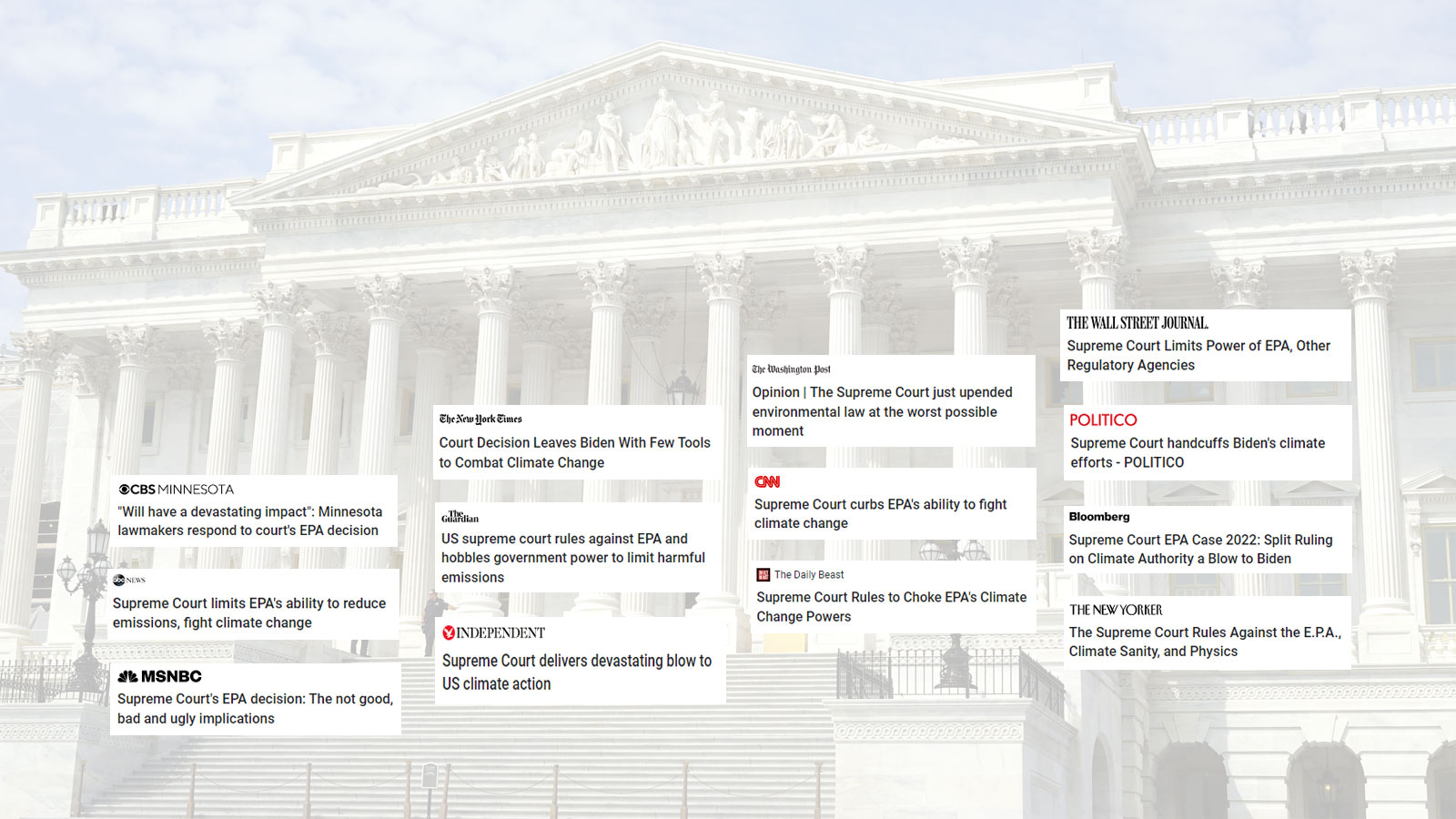“Devastating.” “Hamstrings …” “… a major blow …” “destructive …” a cataclysm …”
And more.
Those are a few of the early terms used by proponents of greenhouse gas emission regulation to describe the U.S. Supreme Court’s June 30 decision in the most significant environmental case of its session … and perhaps since an earlier Court ruling in 2007 finding carbon dioxide a public health pollutant subject to regulation under the Clean Air Act.
In its final decision of this consequential term, the court’s now-familiar six-to-three conservative majority ruled EPA had gone beyond its legal authority by attempting to regulate greenhouse gases through the Obama-era Clean Power Plan. The decision was written by Chief Justice John Roberts, with the three progressive justices dissenting.
But the decision did leave the door slightly ajar to Congress’s outright authorization of such regulations somewhere down the highly uncertain road ahead. Critics of the court’s ruling in West Virginia v. EPA found that option highly unlikely politically and, in any event, nothing to celebrate. (See earlier Yale Climate Connections posts on this case here and here and here.)
Private sector, market forces, big business left to take climate leadership roles? (to be determined)
“Devastating” is the term the Biden White House used in its initial take on the decision.
Carol Browner, EPA Administrator during the Clinton administration, not surprisingly, used the same term in an interview with CNN, which labeled the ruling a “big blow” to Biden administration climate change ambitions. The decision is expected by many to have implications extending far beyond EPA and climate, affecting rule making by diverse Executive branch agencies (the “administrative state”) on a wide swath of issues.
Upcoming posts coming soon at this site will provide detailed coverage on the court’s ruling; on reactions to the ruling from legal and policy experts; and on what options the federal government, and perhaps some states, might next consider in attempting to reduce greenhouse gas pollutant emissions and atmospheric concentrations.
Forecast ahead: Lots of uncertainty, lots more case-by-case litigation, further doubts over U.S. global role, let alone “leadership,” on climate change.


